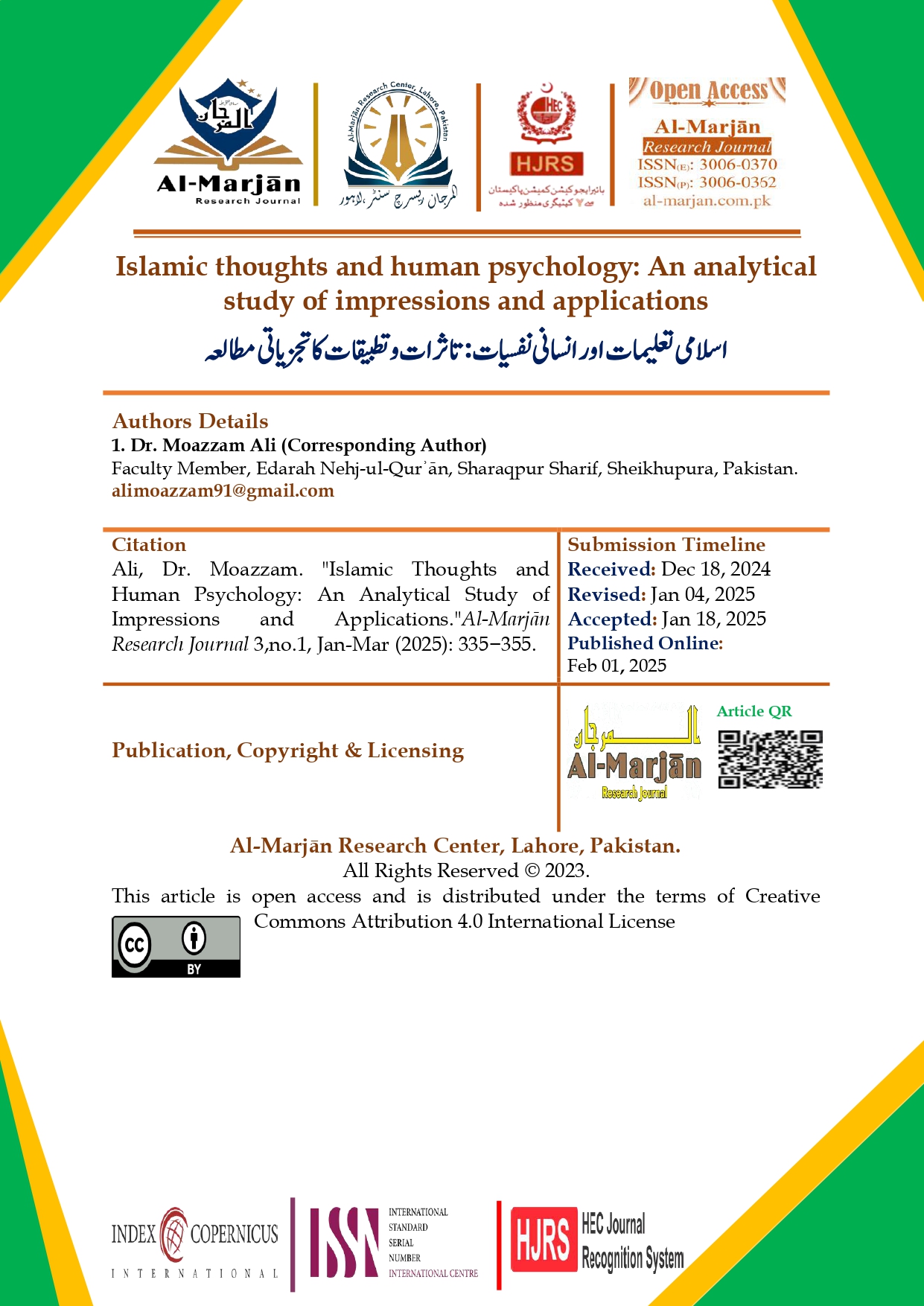Islamic thoughts and human psychology: An analytical study of impressions and applications
اسلامی تعلیمات اور انسانی نفسیات: تاثرات وتطبیقات کاتجزیاتی مطالعہ
DOI:
https://doi.org/10.1234/ghgysn25Keywords:
Intersection, harmony, perspectives, counseling, integrativeAbstract
This study explores the dynamic intersection between Islamic thought and human psychology, aiming to provide an analytical understanding of their conceptual alignments, distinct features, and practical implications. Drawing upon primary Islamic sources such as the Qurʾān and Ḥadīth, the research investigates how Islamic views of the human self—comprising nafs (self), qalb (heart), ʿaql (intellect), and rūḥ (spirit)—contribute to a holistic understanding of mental, emotional, and spiritual well-being. It further compares and contrasts these insights with contemporary psychological theories and frameworks, identifying areas of convergence and divergence. A key focus is the ethical and spiritual dimensions of human development in Islam, emphasizing the role of purification (tazkiyah), mindfulness of God (taqwā), and moral discipline in psychological balance. The paper also examines the emerging field of Islamic psychology and faith-based counseling as a culturally relevant and spiritually grounded alternative to Western-centric models. By highlighting the need for integrative approaches that harmonize scientific methodologies with Islamic moral values, the study argues for a more inclusive, culturally sensitive framework in mental health discourse. The findings suggest that Islamic thought not only enriches psychological theory but also provides practical tools for therapy, self-development, and communal well-being. Ultimately, this research offers a bridge between traditional Islamic scholarship and modern psychology, contributing to the advancement of spiritually integrated therapeutic practices that resonate with Muslim populations around the world.
Downloads





































